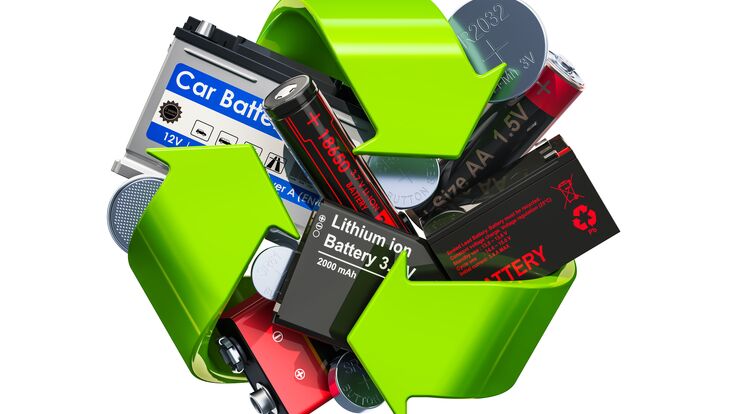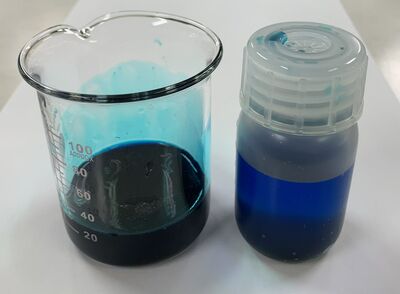Battery recycling : Japanese researchers succeed in extracting rare metal from lithium-ion batteries

One key factor in establishing a carbon-neutral society are rechargeable batteries - typically lithium-ion batteries. They are used in electric vehicles (EV), mobile phones, electronic devices and stationery batterie- you name it. But the tricky thing is: They contain various types of rare metals such as cobalt, nickel and manganese. With the demand for batteries rising, so is the demand for those rare metals.
Rare metals are named for a reason making recycling them extremely important. Even though the recycling system for lead acid batteries as conventional rechargeable batteries is already established, the one for lithium-ion batteries is not sufficient enough in terms of its efficiency, safety, and its recycling cost.
The current lithium-ion battery recycling system includes the usage of toxic inorganic acids such as sulfuric acid or strong organic solvent which are very harmful to the environment. In addition, some chemical process includes high-temperature condition and emit toxic corrosive vapors which is very dangerous to factory operators.
New method is less toxic
Researchers all over the world work on improving the recycling of lithium-ion batteries. Now Dr. Ryohei Mori at Green Science Alliance developed alternative process to extract and recycle rare metals from lithium-ion battery cathode materials. He has also succeeded in extracting cobalt, nickel and manganese from the waste material called "Black Mass" from lithium-ion batteries. His solution: Instead of using toxic inorganic acid and solvent, he uses the so-called deep eutectic solvent.
Natural deep eutectic solvents are much safer and environmentally friendly compared to toxic and corrosive sulfuric acid or organic solvent. It can be synthesized by using a certain ratio of hydrogen bond donor chemicals and hydrogen bond accepter chemicals. By applying two or several chemical compound, one can obtain eutectic substance which has a lower melting point than any of individual chemicals. Deep eutectic solvent used in these experiments is also cheaper than ionic liquid in general.

As a next step towards industrial application, this innovative metal extraction process will be compared to conventional recycling processes. Green Science Alliance will further search for the best deep eutectic solvent and metal sedimentation process, in order to obtain rare metal from lithium-ion battery more efficiently.
The various applications of deep eutectic solvents are:
- Electrolyte for battery
- Extraction of various type of plant derived materials such as catechin, flavonoid, anthraquinone, alkaloids etc…
- Solvent for various type of organic synthesis
- Extraction and deposition of various type of metal including rare earth, rare metal etc…
- Gas absorption
- Dissolution of cellulose, lignin etc…
- Plasticizer
- Biofuel purification
Subscribe to our magazine or our newsletters!

